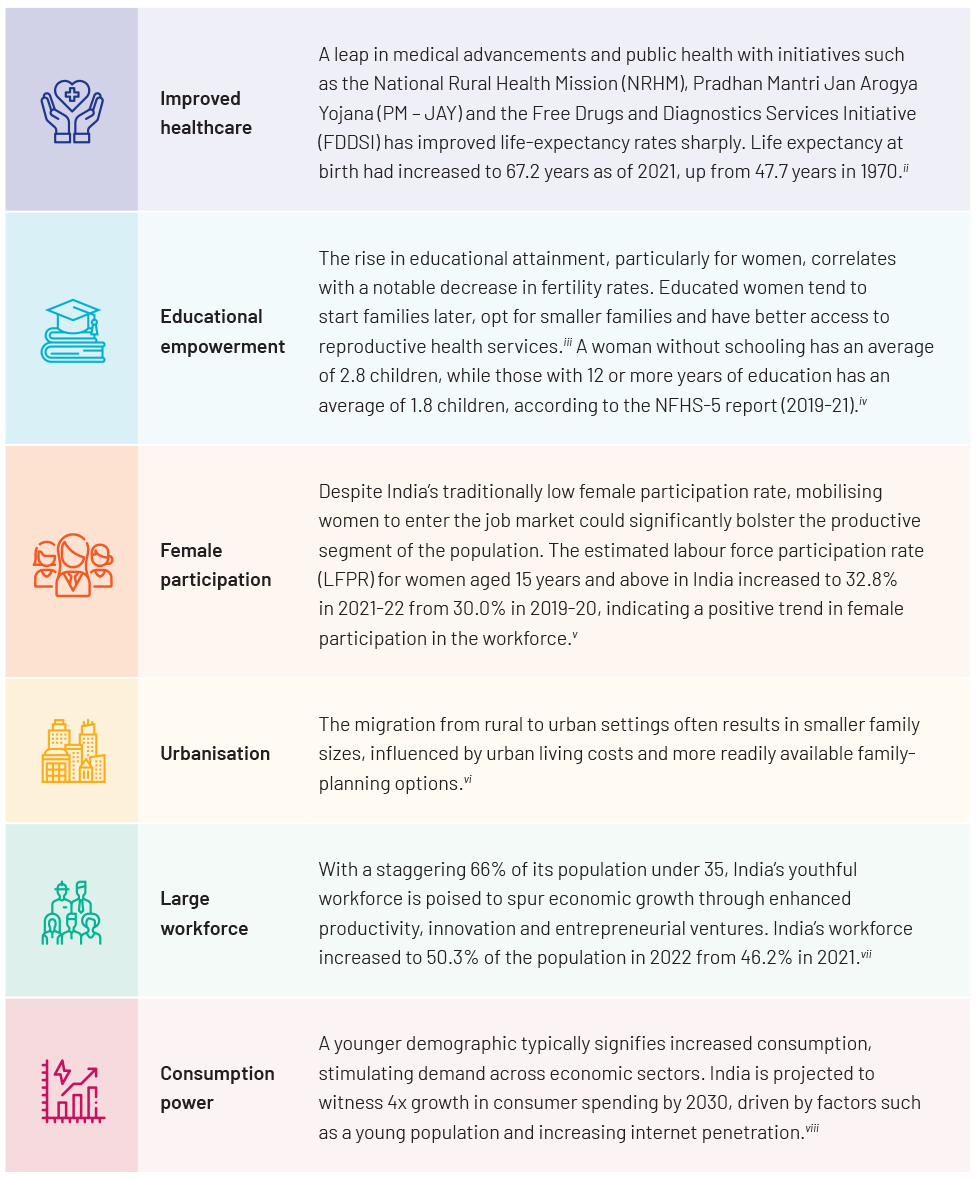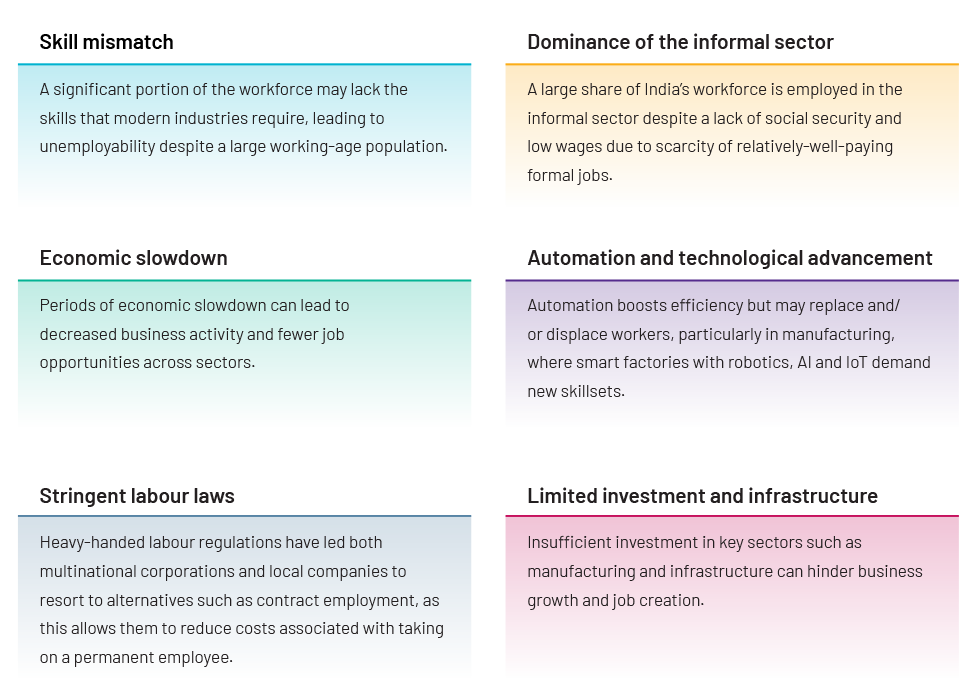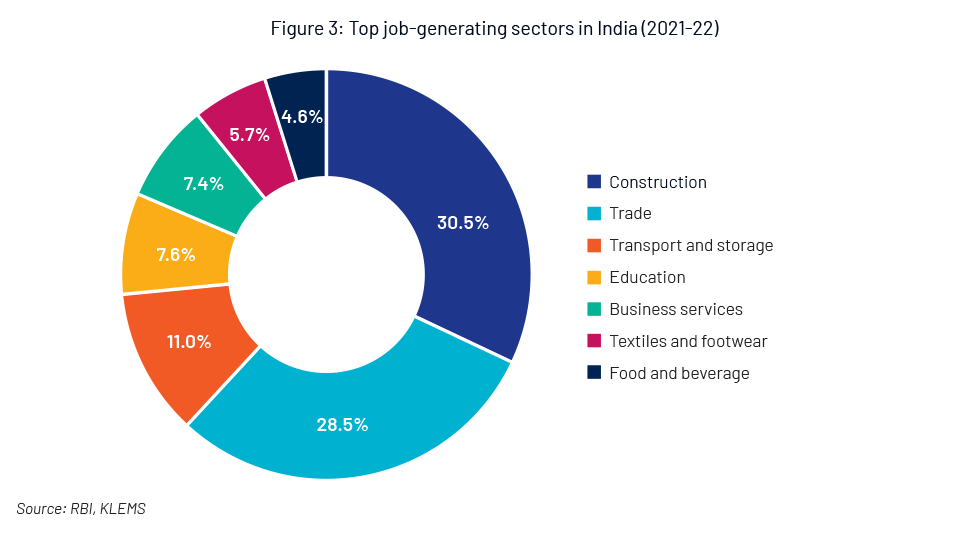Introduction
Introduction
The demographic dividend of a country unfolds when there is a significant rise in the working-age population (15-64 years) when compared with the population of dependent age groups (0-14 years and above 65 years). India, with its burgeoning youth population, is poised to harness this demographic advantage, in stark contrast to nations such as Japan and China, which are grappling with the repercussions of an ageing populace. This demographic boon presents India with a unique window of opportunity for economic growth and societal transformation.
A closer look at the catalysts
India’s demographic landscape has been undergoing a remarkable transformation over the years, driven by several key factors:

Job creation – a key missing piece
Despite these advantages, though, the country faces several challenges in creating enough jobs, especially high-quality ones, for its growing population. In the chart below, we take a look at some key hurdles:

Potential high job creation sectors in India
Following India’s liberalisation, sectors such as construction, trade, miscellaneous services, transport and storage, and education have emerged as significant job creators. According to Arunachal Times, job roles such as “computer scientists, engineers, IT administrators, architects, carpenters, plumbers, construction workers and machinery operators” will continue to see substantial demand going forward as a result of technological advancements, infrastructure needs, population growth and specialisation across various sectors.

Conclusion
India’s demographic dividend is a double-edged sword: it offers immense potential but also harbours significant risk. The country’s young and expanding workforce has the potential to drive economic growth, akin to China’s experience during its demographic dividend phase. However, if this is not managed efficiently, India could encounter challenges similar to those currently faced by Japan: an ageing population, a shrinking workforce and strain on social security systems.
How Acuity Knowledge Partners can help
Acuity Knowledge Partners is a leading provider of high-value research, analytics and business intelligence to the financial services sector. Our seasoned analysts—equipped with sector-specific insights—integrate seamlessly into your teams, amplifying bandwidth and driving value. From customised research to products and services that enable you to navigate complex financial landscapes, we empower you with exclusive insights that endure. With Acuity, it’s not just about service, it’s about strategic partnerships and sustained excellence.





